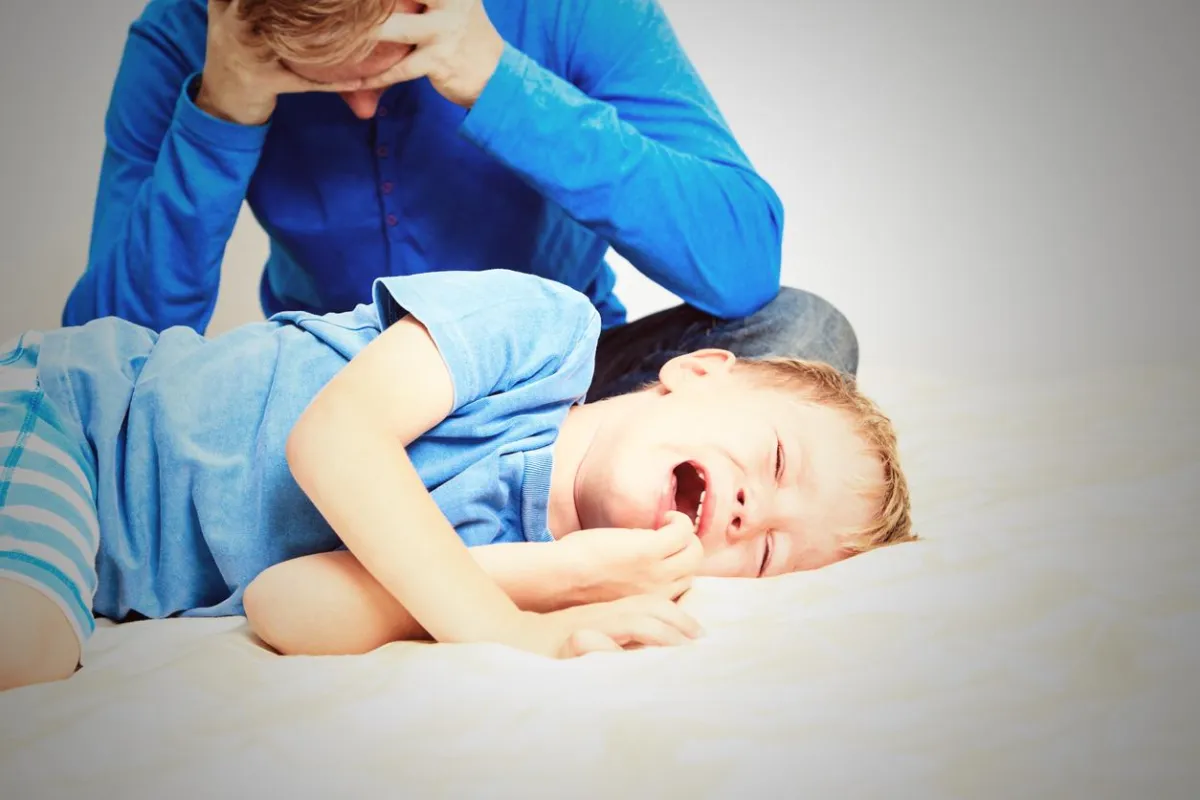
The Root of Challenging Behavior (and the Other Kinds of Behavior Too)
It feels strange talking about the roots of challenging behavior. Sometimes I feel like - because there is SO MUCH challenging behavior in early childhood classrooms - this topic should be common knowledge for early childhood educators. But unless you know where to look, this information is not widely taught. So early childhood educators end up in a classroom with somewhere between 12-25 children with limited communication skills and a whole lot of energy, and most of these teachers have no idea what actually triggers challenging behaviors
The Fight or Flight Response

At the core of many challenging behaviors in early childhood is the fight or flight response. This is an automatic survival mechanism to perceived threats or stress. When faced with a threat, our bodies release a surge of hormones like adrenaline and cortisol. These hormones prepare us to either confront the danger (fight) or flee to safety (flight). For early childhood educators, understanding the fight or flight response is crucial. It helps in recognizing why children might react strongly to stressors in their environment, allowing educators to create a more supportive and calming atmosphere for their young learners.
Understanding Stress Triggers
Stress is a significant factor that can provoke the fight-or-flight response in preschoolers. Even seemingly small changes or disruptions in their routine can be stressful for young children. Here are some common stressors:
Separation Anxiety: Saying goodbye to parents at drop off can be daunting. This is why it is always important to provide empathy and emotional support when children are separating from their parents.
Changes in Routine: Children do better when they have an idea of what is coming next in their day. Staying on a consistent schedule from day to day is important, as well as informing them of any schedule changes that are taking place ("We can't go outside today because it is raining,"; "Today a visitor will be coming to talk to us after lunch,"). Even changes in the classroom environment can cause stress as children have to re-learn where their favorite classroom materials are. Educators should also strive for consistency in their expectations and rules, because changes in expectations from teacher to teacher can also lead to stress.
Social Interactions: Young children are just learning how to communicate and get along with others, and don't have the ability to put themselves in someone else's shoes. As children learn important communication skills, as well as the ability to share and take turns, educators need to be aware of the stress these interactions cause.
Sensory Overload: Loud noises, bright lights, or chaotic environments can be overwhelming, and unfortunately all early childhood classrooms have all three of these elements to some degree. Learning how to create structures and environments that cut down on the chaos is important for educators in order to cut down on stress levels.
Unmet Needs: When children are hungry or tired, or they need to use the bathroom and don't know how to communicate it are all issues that cause stress in young children.
The Sense of Loss
In addition to stress, a sense of loss can also trigger challenging behaviors. For preschoolers, loss is not limited to the tangible, but can also be emotional or psychological. Some examples include:
Loss during social interactions: A child takes a toy or says they don't want to play.
Loss throughout the day: The daily schedule includes built in loss as we ask students to clean up the materials they were working with in order to move to the next thing on the schedule.
Loss of familiarity: Transitioning to a new classroom or having a new teacher can create a sense of loss as children don't know what to expect from the new classroom or teacher.
Moving homes: Changing environments can be unsettling, whether it is a long distance or short distance move. The more moves involved, the more stressful the transition, because children may be going to a new home, a new school, and lots of other new experiences that may be exciting but also increase stress.
Feelings of exclusion: when children are not included in play time or group activities, it can lead to a sense of loss. There can be many different reasons why a teacher would exclude a child from an activity, but the important thing for the teacher to remember is that any act of exclusion increases the stress level of the child being excluded.
Viewing Challenging Behavior Through a New Lens
Understanding that challenging behaviors often stem from a fight or flight response due to stress or a sense of loss can help teachers approach these situations with empathy and patience. By recognizing these underlying causes, teachers can:
Provide stability and predictability: Maintain a consistent routine and prepare children for changes in advance.
Create a calming environment: Ensure that the classroom is a safe and soothing space, as free from sensory overload as you can make it.
Foster strong relationships: Build trust and rapport with each child, showing them that they are cared for and understood.
Encourage emotional expression: Teach children how to express their feelings in appropriate ways and provide outlets for them to do so.
Challenging behaviors in preschoolers are often a result of their natural fight or flight response to stress or a sense of loss. By understanding these root causes, early childhood educators can better manage these behaviors with empathy, patience, and proactive strategies. Remember, every challenging behavior is an opportunity to guide a child towards better emotional regulation and a more positive learning experience.
